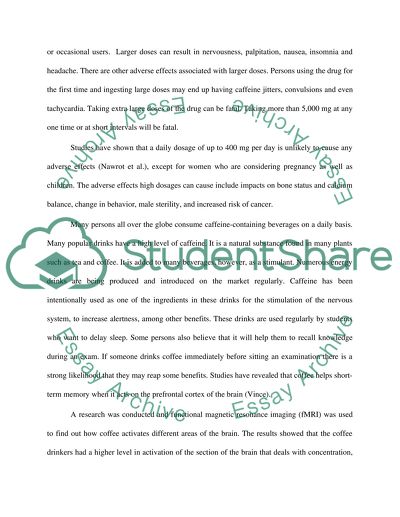Caffeine and the Brain Term Paper Example | Topics and Well Written Essays - 1250 words. Retrieved from https://studentshare.org/miscellaneous/1573222-caffeine-and-the-brain
Caffeine and the Brain Term Paper Example | Topics and Well Written Essays - 1250 Words. https://studentshare.org/miscellaneous/1573222-caffeine-and-the-brain.


